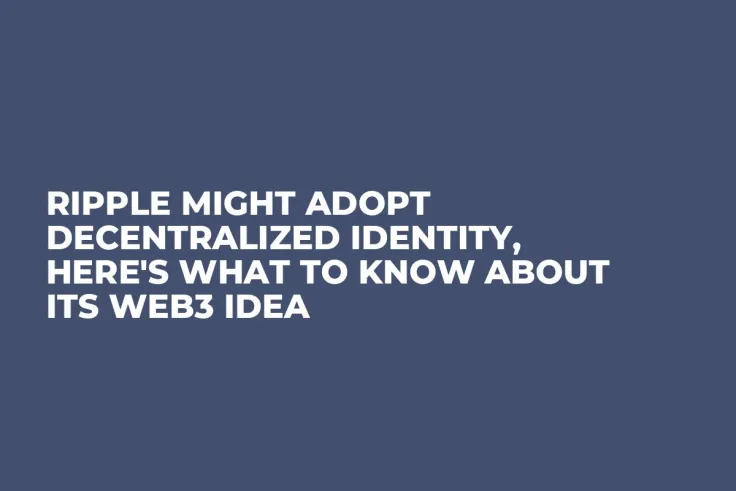
Disclaimer: The opinions expressed by our writers are their own and do not represent the views of U.Today. The financial and market information provided on U.Today is intended for informational purposes only. U.Today is not liable for any financial losses incurred while trading cryptocurrencies. Conduct your own research by contacting financial experts before making any investment decisions. We believe that all content is accurate as of the date of publication, but certain offers mentioned may no longer be available.
Ripple wrote in a recent tweet, "It's time to take ownership of your data." This refers to the concept of decentralized identity, which was explained by Ripple's general manager, Monica Long, in a one-minute video clip. Monica Long explains in the short 60-second video how decentralized identity could give individuals new power to control their personal online data in a Web3 future.
⏱️ It’s time to take ownership of your data.
— Ripple (@Ripple) January 9, 2023
Hear from Ripple GM, @MonicaLongSF—in under 60 seconds!—how decentralized identity can give individuals a new power to control their personal, online data in a Web3 future. #CryptoInOneMinute pic.twitter.com/nqiiXN9yWc
Following the collapse of the FTX exchange in November, the saying "Not your keys, not your coins" has resurfaced. The phrase conveys the idea that cryptocurrency holders cannot be certain of their holdings unless they are kept in a wallet to which they have access.
As a result, each user is now responsible for taking ownership. The private key, which serves as a sort of password to access the funds, is the "key" in question.
What is decentralized identity?
Decentralized identity is an emerging Web3 concept built on a framework of trust for identity management. This allows individuals to create and manage personally identifiable information without the help of a centralized third party.
Personally identifiable information can be used to identify a specific individual and is considered private and sensitive data. This includes any information that can be used to directly or indirectly identify that person. It typically incorporates such personal information as biometrics like fingerprints, credit card accounts, credit histories and so forth.
In addition to this, data from online electronic devices, such as usernames, passwords and "private keys" for crypto holdings, is also included in the information that makes up a decentralized digital identity.
The use of decentralized encrypted blockchain-based wallets serves as the foundation for decentralized identity management. Centralized identity databases are in danger since they might end up becoming the main targets of hackers and data leaks.

 Alex Dovbnya
Alex Dovbnya Dan Burgin
Dan Burgin